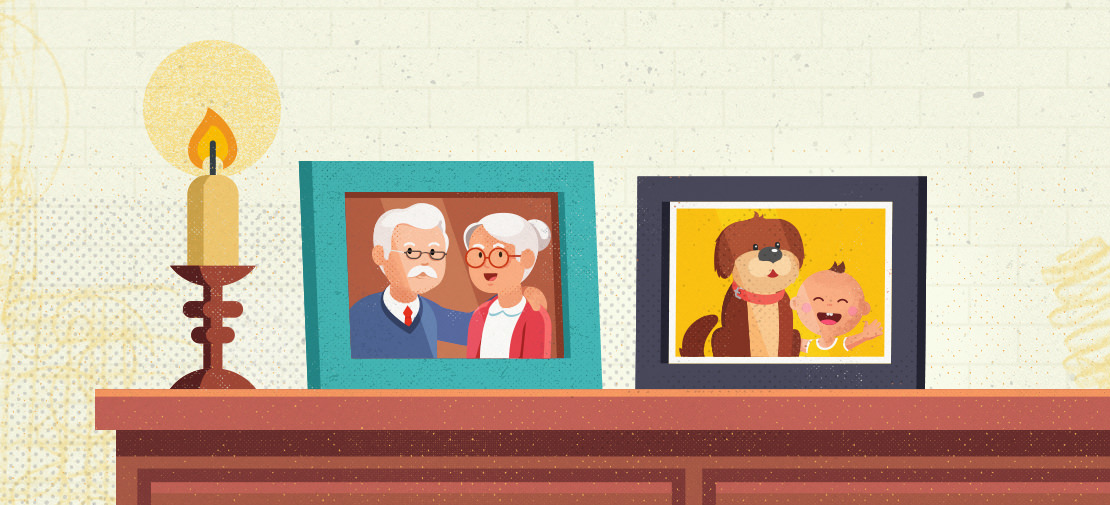

Loss

Loss can be an extremely painful process
The emotional pain the comes with loss is normal – it’s something we will all experience at some stage. It can be a really difficult thing to go through, and it’s different for each of us.
Everyone grieves differently and there not right or wrong way to feel – whatever you feel is OK.
You may experience loss after something or something is taken away from you. For example this may be the death of someone you love, your parents splitting up, a pet dying, a friendship ending, moving away from friends and family, a relationship breakup.
Grief comes with a lot of different feelings and can be an emotional roller-coaster ride of:
- Shock
- Disbelief or confusion
- Anger and frustration
- Hurt
- A sense of longing
- Emptiness
- Deep sadness
- Disconnection
- Remorse
- Fear
- Anxiety
- Numbness
It's also common to be confused about how you're feeling.
Grief can affect you:
- Emotionally – you may experience many intense and overwhelming feelings
- Physically – you may feel unwell or nauseous, tired, experience physical pain, or find it hard to sleep or eat
- Mentally – you may feel confused and find it hard to concentrate
- Socially – you may feel isolated or disconnected from others
- Spiritually – you might feel isolated and disconnected from spiritual beliefs
Coping with loss
Experiencing loss can be powerful, overwhelming, and hard to cope with. Even normal day-to-day activities like making breakfast, talking to people, and going to school can be really difficult.
Some people need time out from their normal routine. Others find comfort in sticking to their usual timetable. Whatever you feel is OK – no one can tell you how to deal with your loss.
Here are some ideas to help you get through:
- Connect – spend time with friends and whānau, share your memories and the things you’ll miss.
- Talk – it’s important you talk to other people about your feelings and what you’re going through. This way you let people know what you need and they can support you. Remember, you can always call us at 0800 Whats Up – we’re here to help.
- Ask for help – if you’re not coping well at school, ask for help – you might need a break, extensions for assignments, or counselling.
- Use creative outlets – find other ways to let your feelings out. Some people like to write a journal or blog, others may draw or paint, sing, dance or play or listen to music. Activities like these may also help you relax during a stressful and emotional time.
- Get outdoors – fresh air and sunshine often help us feel better, so go for a walk, ride your bike, go to the beach, visit the gardens. This is especially good if you’re feeling irritated and need time to cool off.
- Look after your body – it’s easy to forget to look after yourself when you’re feeling miserable. Get some exercise, eat good food and make sure you get enough sleep.
- Be kind to yourself – it takes time to get through grief. Sometimes it takes a long time to accept how things are now – but the person you lost will always have a special place in your heart. Do things that make you feel better, and don’t put pressure on yourself to ‘get over it’.
Supporting a grieving friend
When other people are grieving, we can feel quite awkward – it’s hard to know what to do or say, especially because we don’t want to make them feel worse than they already do. But, there are ways you can help:
- Express concern – “I’m really sorry this happened”, or “I'm here to support you”.
- Ask your friend how they’re feeling and listen carefully to the answer. Remember, everyone experiences grief differently, so don’t assume you know what they need or how they’re feeling.
- If you feel uncomfortable, that’s OK. You could say, “I’m not sure what to say, but I want you to know that I’m here for you”.
- Let your friend talk about their loss, but also understand if they don’t want to talk right now.
- Offer practical help – you could ask your friend if there’s anything you can do to make life easier for them.

Charities Commission number: CC21844 - Registration details on the Charities Commission Website


